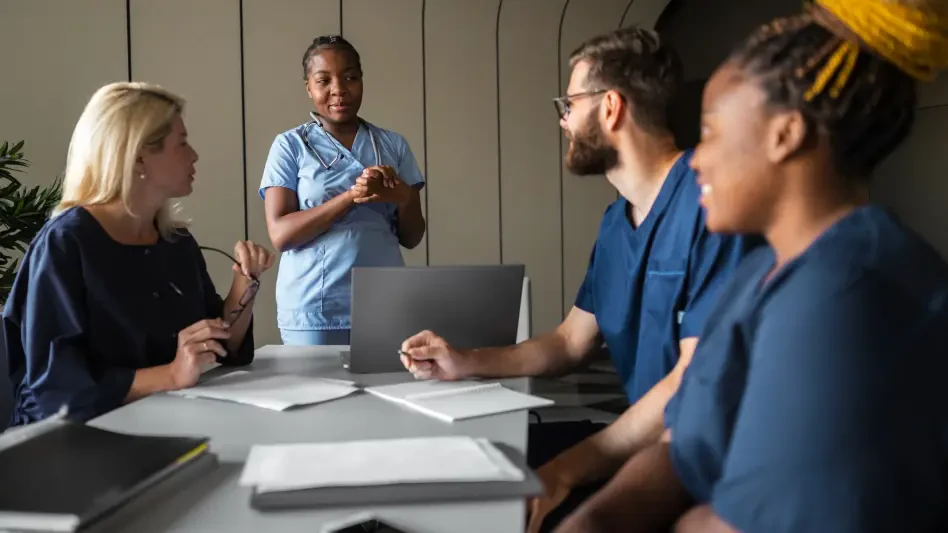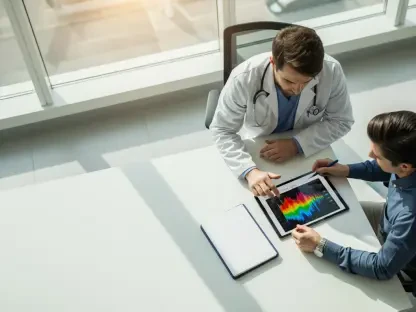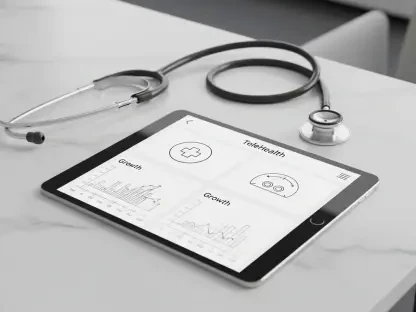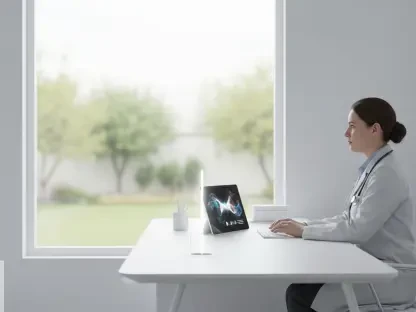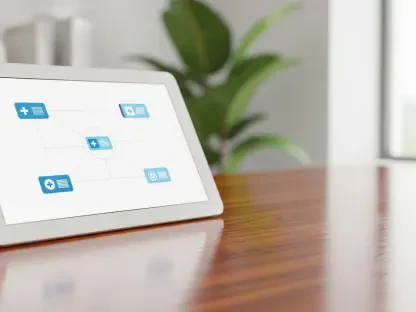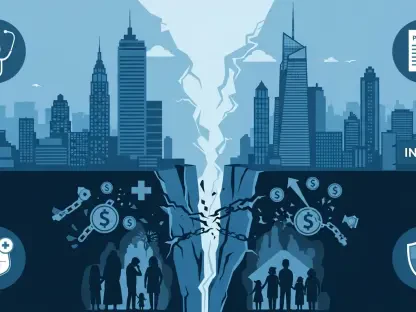In a landscape where health care demands seamless teamwork to address complex patient needs, how do emerging professionals learn to bridge disciplinary divides? The University of Tennessee Health Science Center (UTHSC) offers a compelling answer through its annual Interprofessional Education (IPE) Day, a transformative event that gathers hundreds of students to hone collaborative skills. Held on October 24, this flagship initiative convened over 750 participants from 11 health professions programs across UTHSC’s campuses in Memphis, Nashville, and Knoxville. Representing fields such as Nursing, Dentistry, Pharmacy, and Medicine, these students engaged in hands-on activities designed to prepare them for real-world, team-based care. This coverage delves into the event’s highlights, showcasing UTHSC’s commitment to shaping a unified health care workforce.
Diving into the Core of IPE Day
The essence of IPE Day lies in its mission to introduce students to interprofessional collaboration through a dynamic lineup of activities. Spanning programs like Audiology and Speech Pathology, Physical Therapy, and Physician Assistant studies, the event fosters an environment where diverse disciplines converge. Case studies, simulations, and interactive sessions formed the backbone of the day, emphasizing communication and problem-solving as critical tools for future health care settings. The sheer scale of participation across multiple campuses underscored UTHSC’s dedication to breaking down silos early in students’ academic journeys.
Beyond the numbers, the event’s structure aimed to mirror the complexities of actual patient care scenarios. Students tackled challenges together, learning to value each profession’s unique perspective while navigating simulated health care dilemmas. This practical approach not only sparked engagement but also highlighted the necessity of teamwork in achieving optimal health outcomes, setting a powerful precedent for their professional paths.
Standout Moments from a Day of Learning
A defining feature of IPE Day was its 11 distinct events, each crafted to deepen understanding of collaborative principles. Dr. Tara Lemoine, chair of the IPE Faculty Council, framed the central theme as learning “about, from, and with” peers across health professions. Her insights resonated throughout the day, as students participated in sessions that ranged from ethical discussions to practical simulations, gaining firsthand appreciation for interdisciplinary synergy. Feedback from attendees revealed a newfound recognition of adaptability as a vital skill in dynamic care environments.
The diversity of activities ensured that every participant found relevance in the experience. Interactive games challenged students to think on their feet, while collaborative case studies encouraged dialogue across specialties. These moments of connection illuminated how shared goals can transform individual expertise into collective impact, reinforcing the event’s role in building a cohesive health care community.
Insights from Expert-Led Conversations
Dr. Lemoine’s address during the event stood out as a pivotal moment, emphasizing that interprofessional collaboration is no longer optional but essential for improving patient outcomes. Her remarks highlighted how each health discipline brings distinct strengths to the table, creating a richer approach to care when combined. This perspective set the tone for discussions that underscored UTHSC’s institutional priority of embedding IPE into its educational fabric.
Other expert talks built on this foundation, exploring how teamwork can directly enhance the quality of life for patients. Faculty members shared real-world examples where collaboration turned challenges into solutions, inspiring students to rethink traditional boundaries. These conversations provided a clear message: integrated efforts are the cornerstone of modern health care delivery.
Themes Emerging from Panel Discussions
Panel sessions offered a deep dive into the nuances of interprofessionalism and ethics, drawing attention to communication as a linchpin of effective teams. Experts and faculty unpacked the importance of adaptability when working with diverse groups, providing students with strategies to navigate potential conflicts. These discussions painted a vivid picture of the collaborative challenges inherent in patient-centered care.
A key takeaway from the panels was the value of diverse viewpoints in solving complex health issues. Students gained exposure to scenarios where ethical dilemmas required joint decision-making, fostering a respect for differing approaches. This segment of IPE Day equipped attendees with a broader lens through which to view their future roles within multidisciplinary teams.
Practical Skills in Workshops and Simulations
Hands-on learning took center stage with workshops and rural health simulations that thrust students into realistic health care settings. These activities, ranging from case study collaborations to problem-solving exercises, allowed participants to apply theoretical knowledge in tangible ways. Engagement was palpable as students navigated scenarios that demanded quick thinking and mutual support.
Feedback from attendees highlighted the impact of these practical sessions, with many noting how simulations clarified the importance of each team member’s role. Interactive games further reinforced lessons in flexibility, preparing students for unpredictable workplace demands. Such immersive experiences bridged the gap between classroom theory and clinical reality, leaving a lasting impression on participants.
Cutting-Edge Training with Simulation Technology
At the Center for Healthcare Improvement and Patient Simulation, students encountered state-of-the-art technology that replicated real-world health care environments. These simulation exercises offered a safe space to practice teamwork under pressure, honing skills critical for patient safety. The innovative tools used during IPE Day demonstrated UTHSC’s forward-thinking approach to training.
The relevance of these simulations extended beyond technical proficiency, emphasizing how technology can enhance collaborative decision-making. Students explored scenarios that required coordinated responses, mirroring the intensity of actual medical settings. This focus on innovation positioned the event as a benchmark for preparing health care professionals for team-based challenges.
Reflecting on the Event’s Broader Significance
Looking back, UTHSC’s Interprofessional Education Day proved to be a cornerstone in the university’s mission to cultivate collaborative health care providers. The event not only delivered practical learning opportunities but also reinforced a three-pronged educational strategy encompassing classroom, clinical, and simulation-based training. This alignment with accreditation standards showcased UTHSC’s dedication to producing well-rounded professionals.
Dr. Lemoine’s vision for a unified IPE program, potentially through a dedicated framework across all colleges, emerged as a key discussion point. Plans to expand faculty expertise in this area hinted at even greater strides in the coming years, starting from 2025 onward. The event’s success signaled a promising trajectory for UTHSC’s role in shaping industry trends toward integrated care.
As a next step, stakeholders can focus on scaling these initiatives by integrating more real-world partnerships and community health projects into the IPE framework. Encouraging alumni to mentor current students in collaborative practices could further enrich the learning ecosystem. Ultimately, sustaining this momentum will ensure that UTHSC continues to lead in preparing health care teams equipped to meet evolving patient and societal needs.
